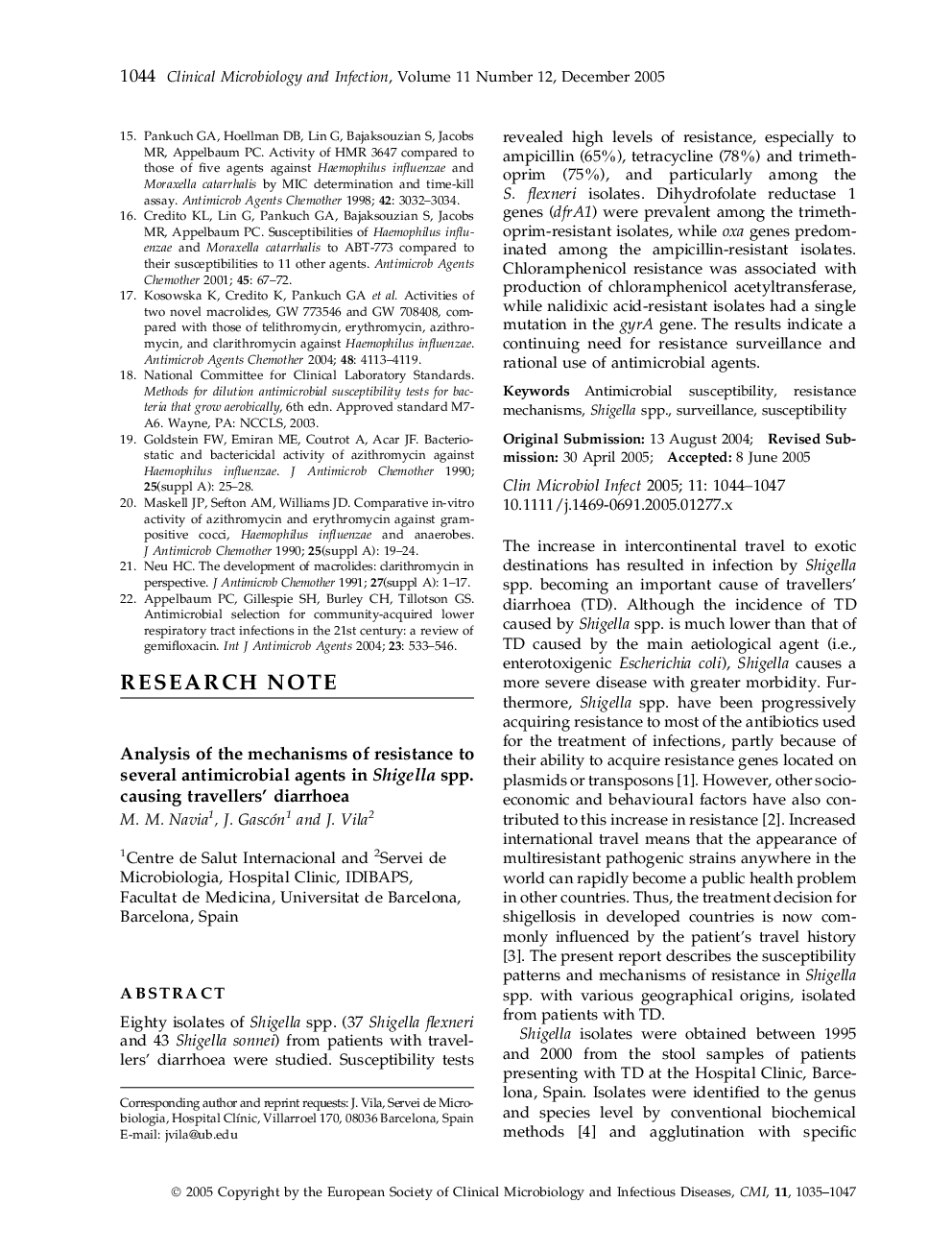| Article ID | Journal | Published Year | Pages | File Type |
|---|---|---|---|---|
| 9275963 | Clinical Microbiology and Infection | 2005 | 4 Pages |
Abstract
Eighty isolates of Shigella spp. (37 Shigella flexneri and 43 Shigella sonnei) from patients with travellers' diarrhoea were studied. Susceptibility tests revealed high levels of resistance, especially to ampicillin (65%), tetracycline (78%) and trimethoprim (75%), and particularly among the S. flexneri isolates. Dihydrofolate reductase 1 genes (dfrA1) were prevalent among the trimethoprim-resistant isolates, while oxa genes predominated among the ampicillin-resistant isolates. Chloramphenicol resistance was associated with production of chloramphenicol acetyltransferase, while nalidixic acid-resistant isolates had a single mutation in the gyrA gene. The results indicate a continuing need for resistance surveillance and rational use of antimicrobial agents.
Related Topics
Life Sciences
Immunology and Microbiology
Microbiology
Authors
M.M. Navia, J. Gascón, J. Vila,
